Posted on 6/10/2021

BMW is a brand name that is synonymous with class and luxury, which is why BMWs are so unique in the eyes of their owners. At German Motorworks, we have factory-trained technicians that are trained to take good care of BMWs. As a specialty shop that focuses on BMW and other German automobile repairs, we would like to spread these helpful maintenance practices that will keep your BMW running top-notch for many years to come. Go In for Regular Oil Changes The engine is the heart of your BMW, which is why it is so crucial to upkeep your vehicle's oil levels. To avoid unnecessary issues in your BMW's lifetime, you should take your car into our shop for regular oil changes to extend the engine's life. Additionally, keeping up with your oil will make your car perform better with enhanced fuel economy. Clean Your Air Filters Periodically changing out your air filters will give you many benefits such as increasing fuel efficiency, improving acceleration, a ... read more
Posted on 5/17/2021
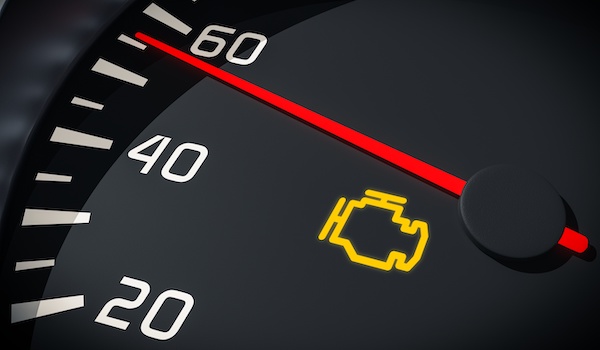
One of the most dreaded lights that could illuminate on your vehicle's dashboard display as you are driving is the check engine light. This is due to the fact that when the check engine light comes on, you are unaware of what the exact problem could be, so you have no idea if it is a minor issue or something rather large and important. The only way to really be able to tell what the check engine light indicator is trying to tell you is by running a computer diagnostics test on your vehicle. Unfortunately, not every driver has the tools or expertise needed to be able to run this test on their own. If that is the case for you, your best option is to bring your vehicle into an auto mechanics shop as soon as the check engine light illuminates in order to get down to the core of the problem as fast as possible. If you are driving in your vehicle and the check engine light does come on, this does not necessarily mean that you should automatically pull your car over to the side of the r ... read more
Posted on 4/21/2021
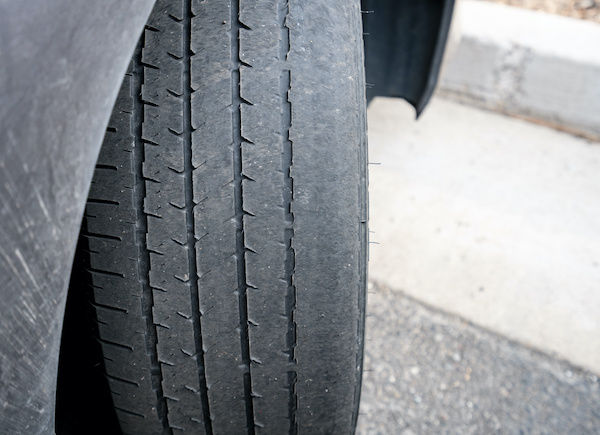
Vehicle tires are expensive and we want to get the most life out of our tires that we can. It may seem that tires wear out too quickly, but there are several reasons why tires need replacement more often than necessary. Following are some potential causes of premature tire wear. Incorrect Tire Alignment Properly aligned tires make the car travel straight down the road. Many drivers have experienced the feeling that the vehicle is pulling to the right or left. When this happens, the tires are misaligned. Because the tire angle is wrong, the tires wear incorrectly either on the inside or outside of the tire. Sometimes bumps, potholes, and poor road conditions lead to tire misalignment. Drivers can reduce the effects that poor road conditions have on tires with careful driving habits. Tire Inflation Problems Manufactures recommended certain tire inflation levels for several reasons. These reasons include making sure the vehicle weight is distributed properly and helping the vehicle co ... read more
Posted on 3/12/2021
.jpeg)
Fluid leaks are quite common, especially in relatively older car models. Fortunately, most drivers and car owners can easily identify an oil leak, particularly when they see a rainbow gloss on the ground. Even so, other possible leaks might prove difficult (or impossible) to identify. While car leaks are not certainly a cause of concern, they all point to one thing you need to pay more attention to your car's maintenance needs. Here are some of the most common car leaks and how you can diagnose them: Engine Oil Leaks If the engine oil leak is happening at a very low rate, it might not pose an instant danger to your driving safety. However, it can lead to unnecessary motor friction, which can potentially harm your car's engine. Engine oil leaks are mostly black or brown and usually form rainbow sheen when the oil comes to contact with water. Transmission Fluid Leaks Unlike most other leaks, a leaking transmission fluid poses serious safety concerns and can lead to expensive ... read more
Posted on 1/8/2021
.jpeg)
If you want to keep your car performing optimally, you need to pay attention to the kind of smell it is producing. Some smells should tell you that something is wrong, and therefore, when you notice that your car is producing a peculiar smell, you should not ignore it. Below is a rundown of some unusual vehicle smells and what they mean. Rotten Eggs The smell of rotten eggs indicates that there is an issue with the catalytic converter. The catalytic converter is responsible for converting the hydrogen sulfide in the exhaust into sulfur dioxide. Therefore, when it is not working properly, hydrogen sulfide will not be converted into hydrogen dioxide, and hence the smell of rotten eggs. If the issue is not fixed promptly, it may lead to a catalytic meltdown, and consequently, cost you more in repairs. Burnt Carpet The smell of burnt carpet usually indicates issues with the brakes. Therefore, if it happens under normal driving conditions, you should get your brakes checked right away ... read more
Posted on 12/13/2020
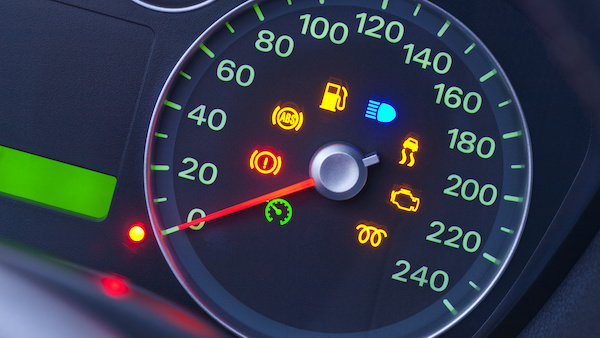
Modern cars today have an interactive interface that helps you understand and communicate with your vehicle. These digital displays indicate your car's condition, like the need for an oil change, and others. Here are 5 important warning lights on your dashboard that should never be ignored. Electrical System FaultHow does it look? This is one of the simplest lights to identify; it looks like a battery. It is called an Electrical System Fault light. What it means This indicates a problem with the electrical charging system. What to do If you are driving, go to the nearest garage for an immediate checkup. This will help you avoid any other long-term problems. Tire Pressure Warning LightHow it looks? This light indicator looks like an image or outline of a tire. What it means? In many cases, this light indicates a problem with the tire pressure, such a ... read more
Posted on 11/30/2020
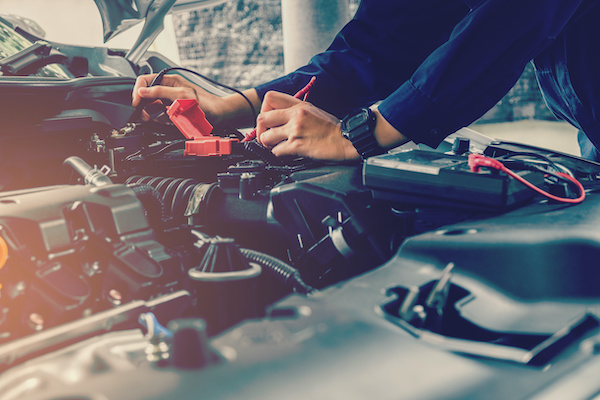
A dead car battery is something that most of us hope to avoid as much as possible. Getting into your vehicle to find that your car won't start can be super stressful, especially when it happens on your way to work or when you need to be somewhere important. Luckily, there are ways that you can help avoid a dead battery. A car battery life typically runs from 3 to 5 years, depending on the make and model of your vehicle and the manufacturer of your car battery. Many car owners will actually wait until their car battery dies unexpectedly to change it, and being proactive about testing your battery charge and knowing when it is soon to die is the best way to better maintain your car battery. Here are some ways to avoid a dead car battery before it happens: Have your vehicle regularly inspected here at our shop. We can test your car battery to ensure that it has life left and let you know when it needs to be replaced. Know your car ... read more
Posted on 10/30/2020
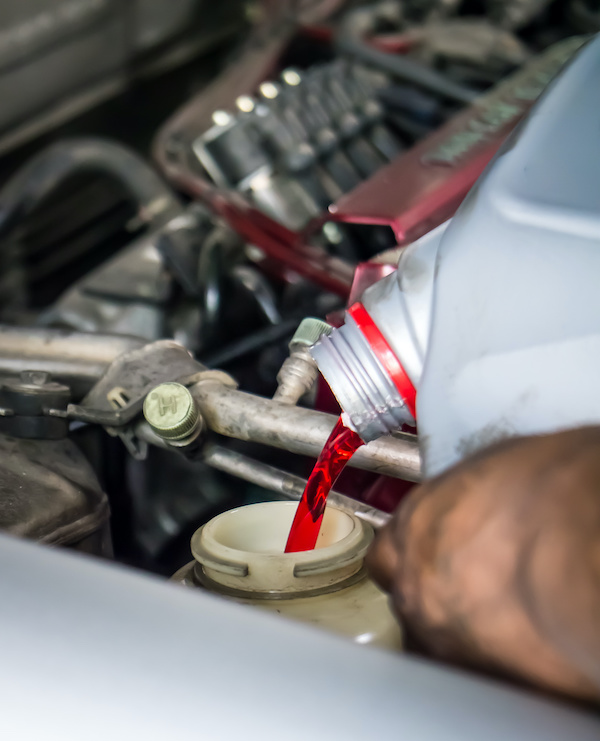
Transmission fluid is a vital part of your vehicle because it lubricates various transmission components to prevent overheating and corrosion while your vehicle is running. Transmission fluid typically lasts a long time but may need to be replaced at a major service every 30,000 miles or so. It depends upon the make and model of your vehicle and your own individual driving habits. If you begin to notice any of the following symptoms, you may be due for a transmission fluid change: Grinding or squealing noise while shifting, which can indicate that your fluid isn't properly lubricating your gears and clutch components You find it difficult to shift, either with manual or automatic transmissions Your vehicle is surging forward or backward without you pressing on the gas or brake pedal The gears are slipping out of place, which can be caused by grime and dirt buildup from the dirty transmission fluid You notice a delay ... read more
Posted on 9/29/2020
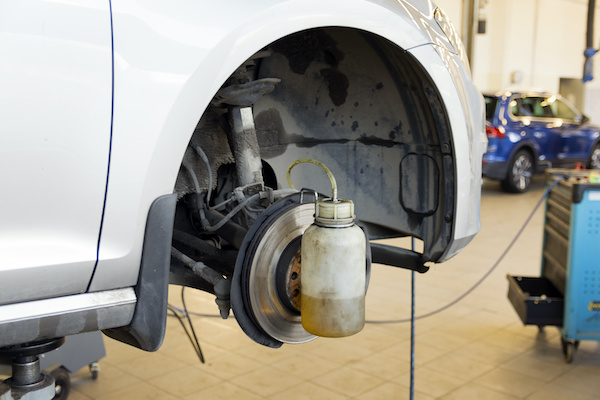
When thinking about your vehicle's brake system, the brake pads probably come to mind. However, did you know that the brake system is actually hydraulic, meaning that it uses power from brake fluid for the entire system to work? Many drivers aren't aware of this, which is why they may not understand what a brake fluid flush is or if they even need it. Your vehicle's brakes are one of the most important safety features, which is why brake maintenance is so important. Having regular brake inspections can catch any problems early on and ensure that your brakes are operating at their best so that you can stay safe on the road. When you press down on the brake pedal, brake fluid creates the power that makes the system turn so that your vehicle slows down or stops. Over time, what happens is that the many different seals and rubber parts within the system can begin to wear down, which can cause leaking and also cause dirt and debris to contaminate the brake fluid.&n ... read more
Posted on 8/26/2020
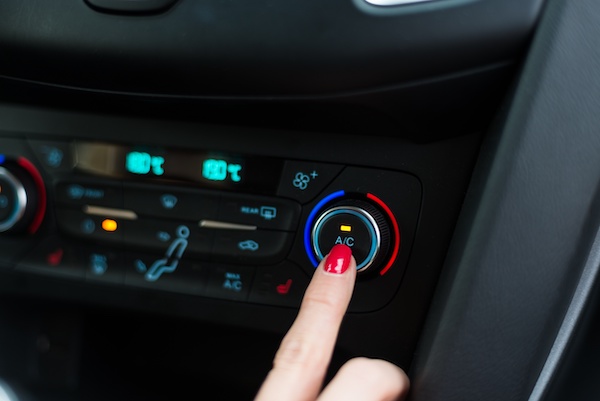
Getting into a hot vehicle that has been parked in the sun all day only to find that the air conditioning isn't working is never fun. An A/C system that blows hot air can not only be uncomfortable but can also signal an issue with a critical component. It's in your best interest to get the issue taken care of quickly to avoid discomfort when driving and risking more problems from occurring. There are a couple of different reasons why you may be dealing with an air conditioning system blowing hot air. The potential causes include: Low refrigerant - this is almost always exclusively caused by a leak somewhere in the system because refrigerant never needs to be topped off. In order to find the leak, we perform certain inspections and testing. Once the leak is repaired, we add new refrigerant to the system and perform testing to ensure that it works at optimal performance. Failing compressor - the compressor is the heart of the air conditioning system ... read more